Are you navigating the tricky waters of advance payment security requests? It can be a daunting task, especially when trying to maintain trust and transparency with your clients. In this article, we'll break down the essential components of writing a clear and effective letter that ensures both parties feel secure in the transaction. So, if you're ready to learn how to craft the perfect request, keep reading for our expert tips and a handy template!
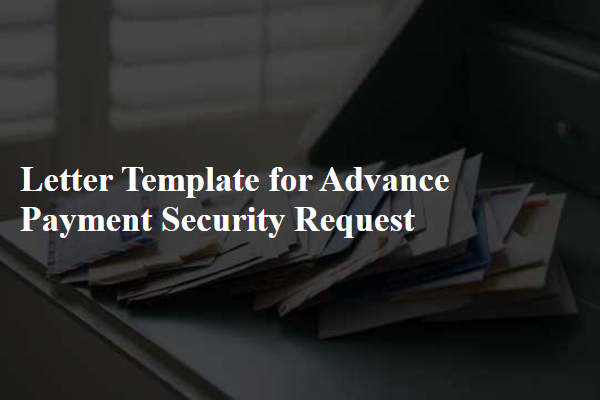
Clarity of Terms
A clear understanding of advance payment security requests is crucial for businesses engaging in transactions. Advance payment security often involves a contract specifying terms and conditions between the buyer and seller, typically outlining the amount requested (such as 30% of the total cost), payment timeline (for instance, within 15 days from the contract signing), and acceptable forms of security (like bank guarantees or irrevocable letters of credit). It is essential for parties to agree on the release conditions of such securities, including milestones for delivered goods or services (for example, upon successful completion of the first project phase), ensuring accountability and trust throughout the business relationship. The clarity of these terms protects both parties and facilitates smooth operations in substantial transactions.
Legal Compliance
Advance payment security requests play a crucial role in legal compliance, particularly in financial transactions involving significant amounts, such as construction contracts or international trade agreements. These security measures, typically issued by banks or financial institutions, serve to protect payees from potential default by providing a guarantee of payment. For instance, in the construction industry, a performance bond may be required, ensuring that a contractor fulfills their obligations under a contract. Legal frameworks, such as the Uniform Commercial Code (UCC) in the United States, outline the necessary conditions and enforceability of these security instruments. Furthermore, regulations in jurisdictions like the European Union dictate certain standards and practices to safeguard parties involved in transactions, ensuring financial security and compliance with anti-fraud measures. Adherence to these legal requirements is essential for maintaining trust and accountability in business dealings.
Risk Assessment
Advance payment requests entail various risks, making a thorough risk assessment crucial. Businesses should evaluate factors like the creditworthiness of the client, compliance with contractual obligations, historical payment behaviors, and industry-specific risks. For instance, a construction project in New York City may involve larger sums due to the city's high operational costs, multiplied by unforeseen delays caused by weather or zoning regulations. Additionally, assessing the financial stability of the client, such as their liquidity ratios and past bankruptcy records, is paramount to determine reliability. A well-documented analysis serves to minimize potential losses and secure the financial interests of the business involved.
Collateral Requirements
Advance payment security requests often include collateral requirements that protect the interests of parties involved in transactions. Collateral, which can take various forms such as cash deposits, bank guarantees, or performance bonds, serves as a financial safety net, ensuring that obligations are met. In construction projects, for instance, a bank guarantee might be expected before commencing work to safeguard against potential defaults. The amount of collateral typically aligns with the total contract value, often set between 10% to 30% to mitigate risk. Clear articulation of these requirements in formal documentation fosters transparency and trust, establishing a framework for secure financial interactions.
Communication Protocols
Advance payment security requests require careful communication protocols to ensure clarity and compliance between parties. Clearly defined terms should include specificity regarding payment amounts, due dates, and the purpose of the advance funds. Additionally, it is critical to outline the terms of the security such as collateral types, legal obligations, and the timeline for repayment tied to project milestones, often observed in construction agreements. Communication should occur through secure channels, ensuring confidentiality, particularly when sharing sensitive financial information. Documentation must be maintained meticulously, covering all aspects of the agreement, with signatures from authorized representatives on both sides to reinforce legitimacy and protect against disputes.

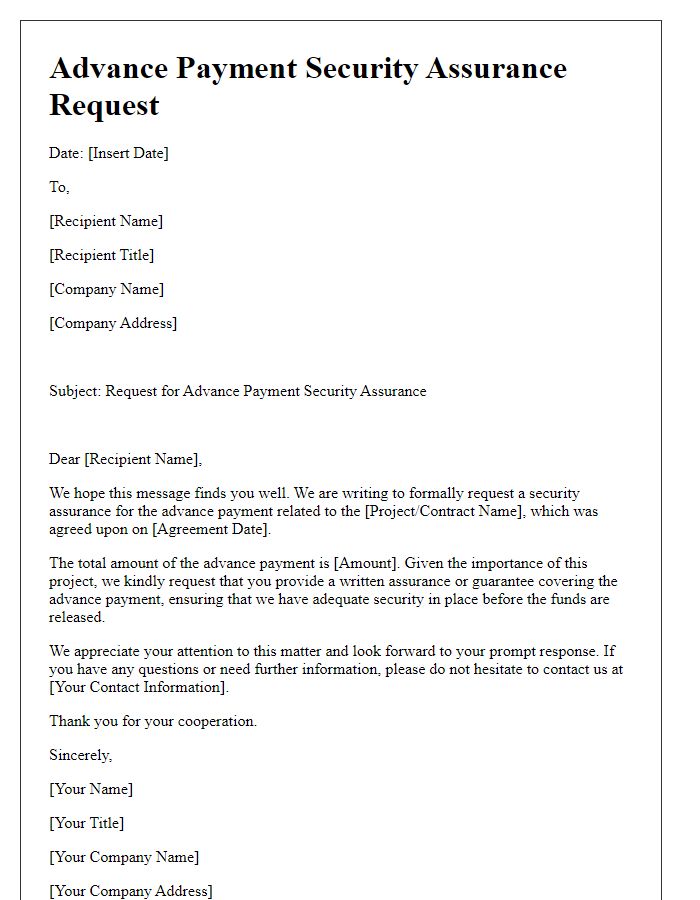
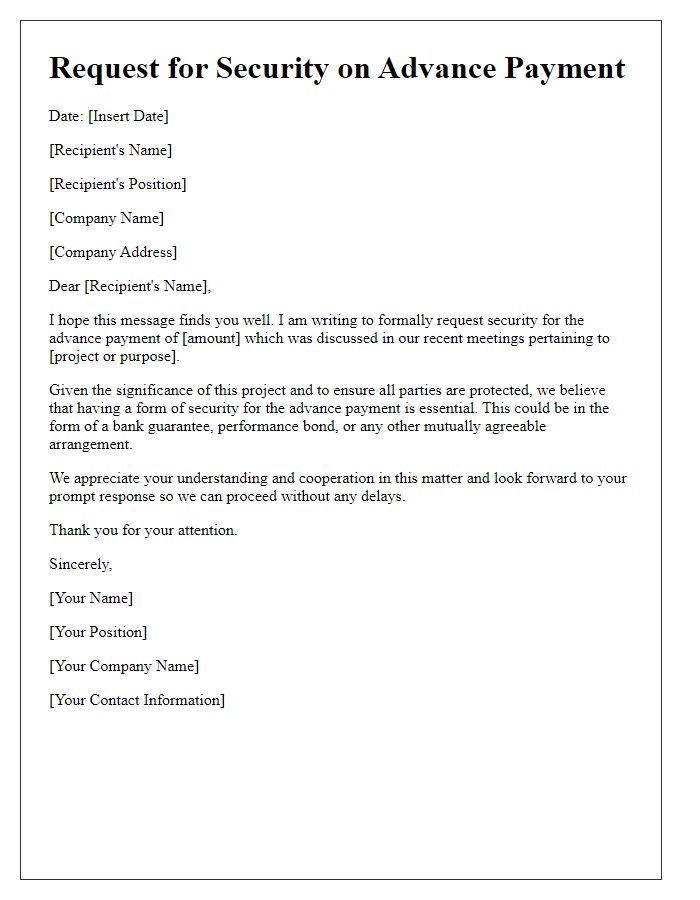
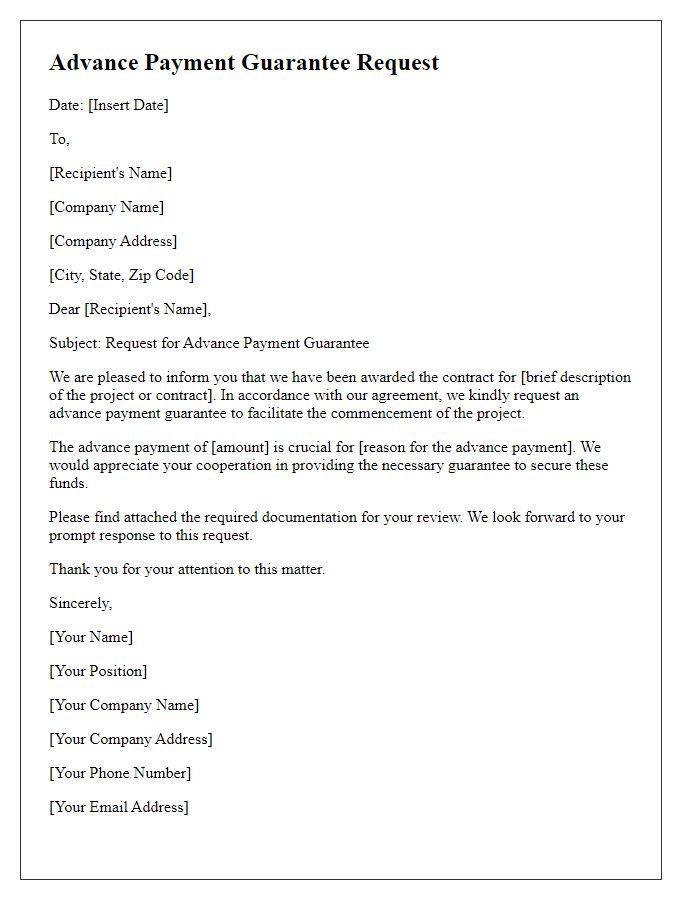
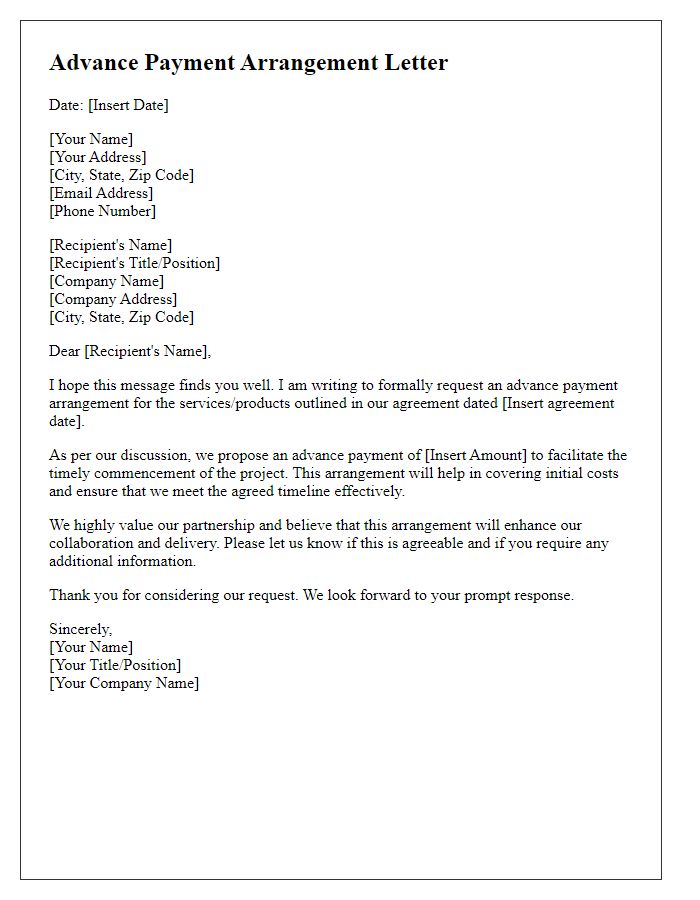
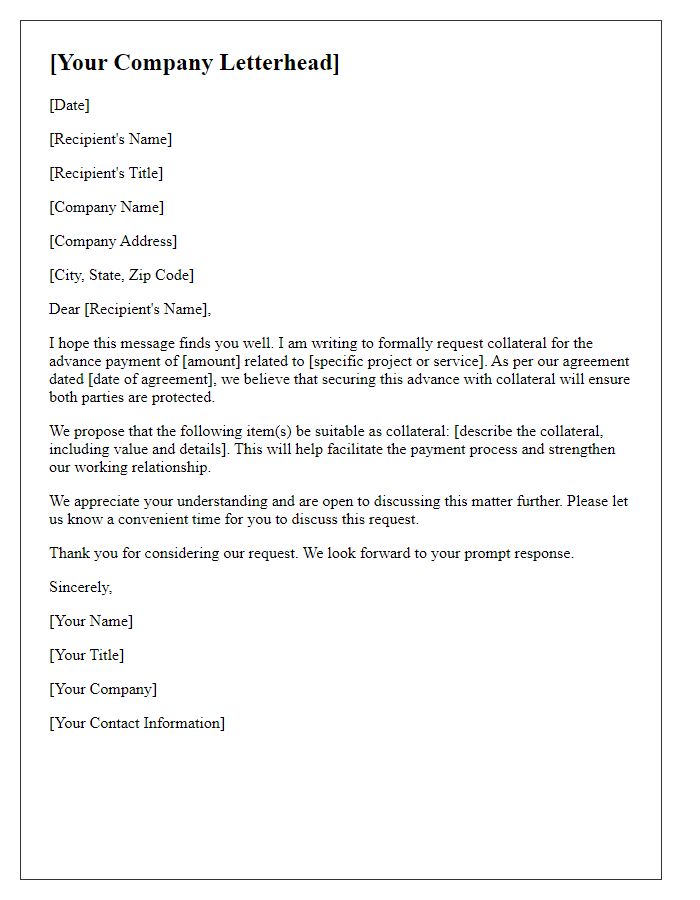
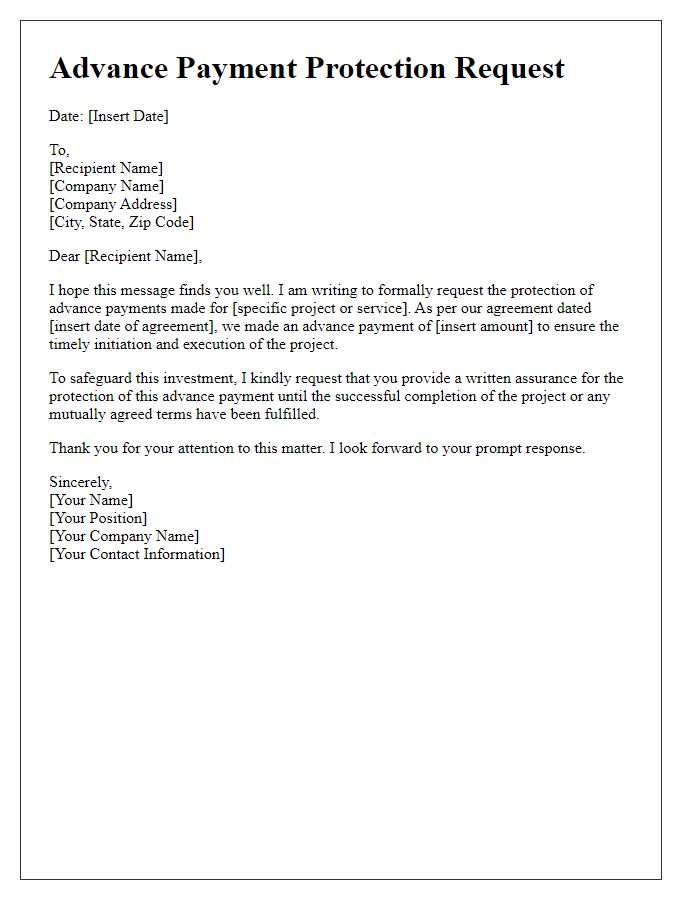

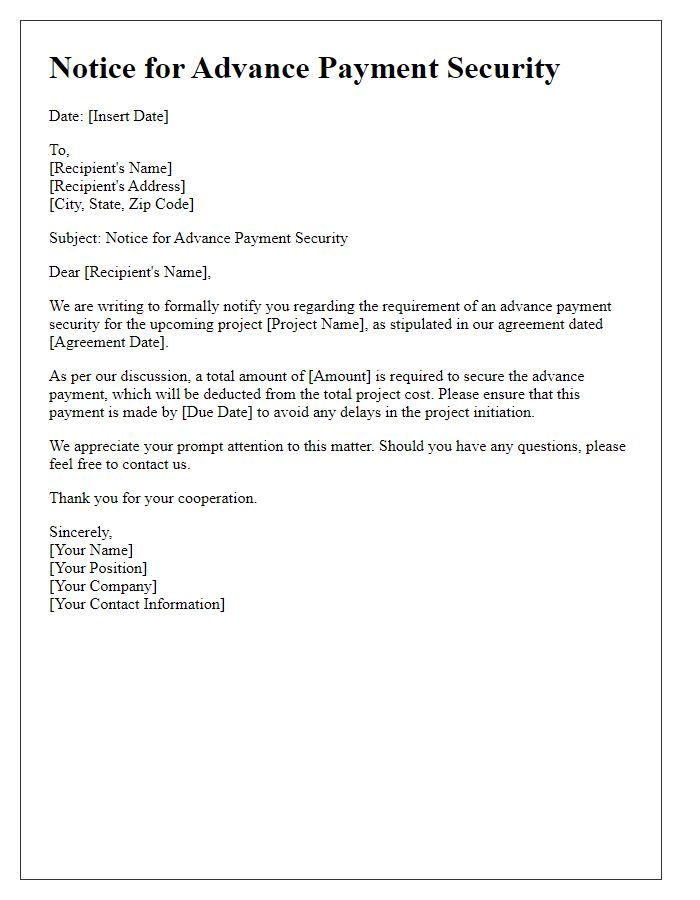
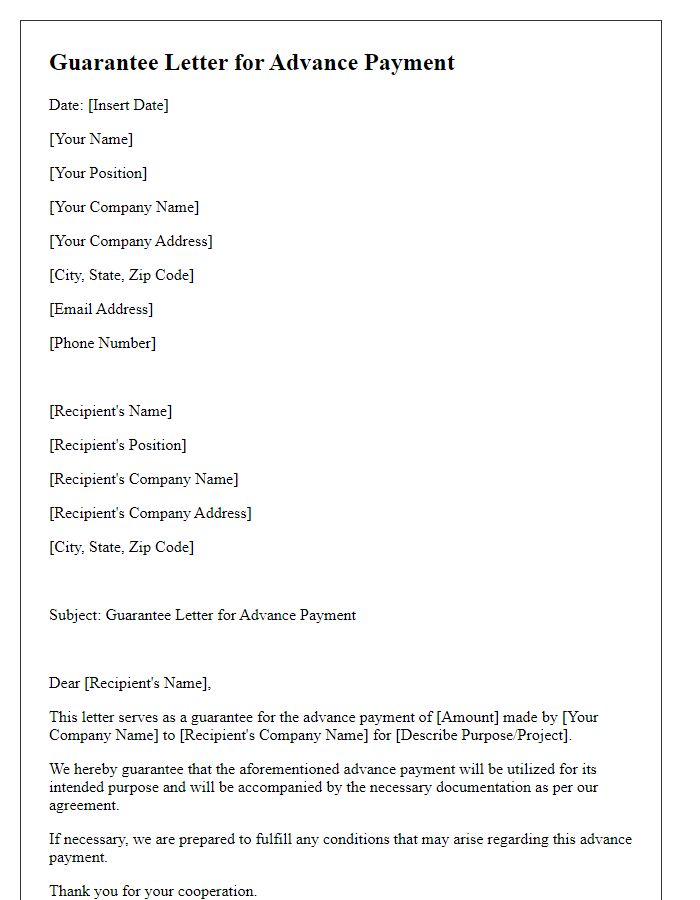
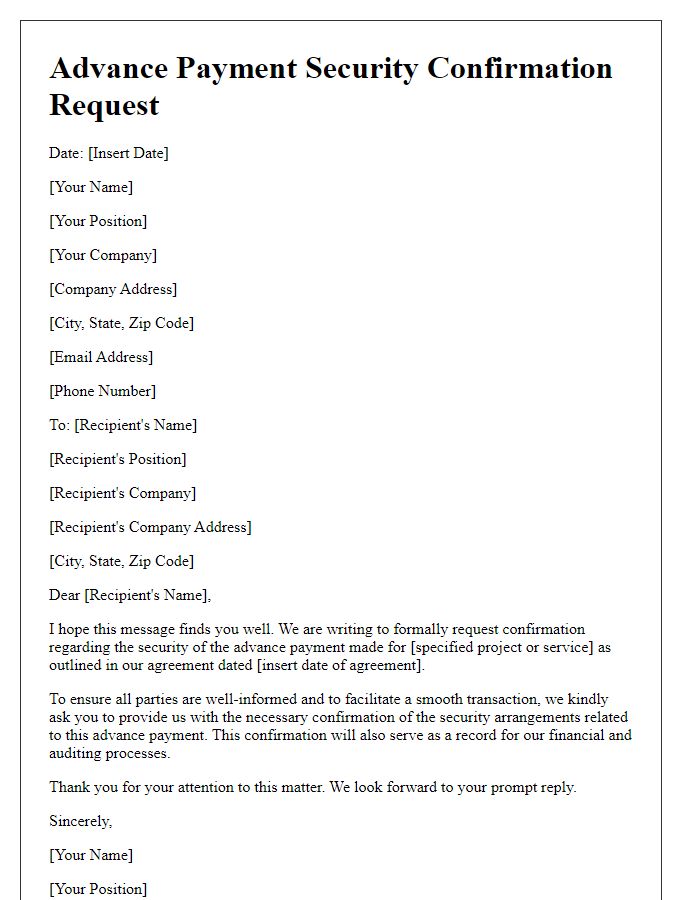


Comments